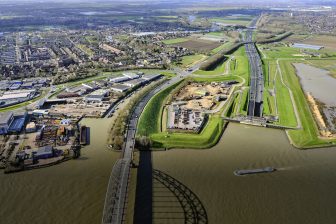Partnership model promises tailored Public Services
Partnership model promises Public Services tailored to individual needs
London, United Kingdom – 2006-06-22 the Government set out its vision for a partnership approach between public, private and third sectors to deliver the services that people want in the way that suits them best.
Speaking at Future Services Network’s Three Sectors summit, the Prime Minister described an enhanced role for the third sector in working with the Government to deliver public services that are more focused around the needs of individuals and communities.
Marking an important step forward in the Government’s public service reform agenda, today’s event saw a range of announcements from different departments designed to ensure the work of the third sector is expanded on and properly supported.
The Prime Minister announced a comprehensive review of community equipment, including wheelchairs, handrails and walking aids, will be led by the Department of Health. The aim is to achieve an unprecedented improvement in the way in which this vital equipment and support are delivered to people coping with difficult circumstances.
The review will draw on this experience and identify a new delivery model that ensures that users are always guaranteed a service tailored to their needs, through effective local partnerships between public, private and third organisations. The review will allow the third sector to play a bigger role in a market worth around £220m, both in delivering services and informing their design.
Speaking alongside the Prime Minister, the new Minister for the Third Sector Ed Miliband set out what the Government is doing to ensure third sector organisations who want to take on public service contracts are confident and able to do so.
Ed Miliband spoke about how the public sector can best learn from third sector organisations and their capacity to innovate and tailor services to specific community-level needs, including engaging hard-to-get-to groups.
Ed Miliband said: ‘The relationship between government and the third sector is evolving as public service delivery changes to better meet the complex needs and rising expectations of individual users.
‘The third sector is uniquely positioned to make sure that local users experience public services that are specifically tailored to meet their needs. The role of the Government will be to enable voluntary organisations to deliver services in partnership with the public and private sectors, bringing with them a more intimate knowledge of user needs, the ability to engage hard-to-reach groups in society, and the capacity to innovate in response to unique local combinations of delivery challenges.’
The following announcements were made today by the Government:
Cabinet Office
Minister for the Third Sector Ed Miliband announced that:
- The Office of the Third Sector will work to ensure that longer-term funding arrangements become the norm rather than the exception.
- He is working with Ministerial colleagues on how to ensure that highly specialised services often provided by the third sector are being commissioned at the right level, and that commissioning approaches being developed by departments allow the third sector the chance fully to become involved in partnership working.
- A new Public Service Innovation Team will be established in the Office of the Third Sector, which will work with the IDeA to be an intelligence bank for best practice in the third sector and act as a bridge for sharing and fostering innovation in the public sector.
- Building on the Chancellor’s Budget announcement that the next £14m Invest to Save programme will be focused on the third sector, the Office of the Third Sector and the Treasury will work together to develop this round with a particular focus on disseminating third sector innovation and developing stronger partnership working. We will ensure that our investment programmes, such and the next tranche of the Futurebuilders programme and the new ISB round are developed as a consistent package of support.
- All this work will be brought together in the Autumn, through the publication of the Third Sector Public Service Delivery Action Plan.
Department of Health (DH)
Care Services Minister Ivan Lewis announced that:
- DH has established a Social Enterprise Unit to encourage innovation and entrepreneurialism in health and social care, paving the way for new services which better meet patients and service users’ needs.
- DH will publish a report from its ground-breaking Third Sector Commissioning Taskforce.
- DH will continue work over the coming months on some other areas for greater third sector involvement, including the Expert Patients Panel and the Expert Carers Program.
Department for Communities and Local Government (DCLG)
Local Government Minister Phil Woolas announced:
- A senior Central-Local Government-Third Sector Engagement Board will provide national leadership across the public and third sectors.
- DCLG will work to build Compact financial principles into Local Government financial codes of practice and the CPA.
- A reaffirmation of government’s belief that councils should pass on the security of three-year settlements to their funding of the third sector partners.
- The development of regional and local networks between the two sectors is being encouraged. For example, the North East Regional Centre of Excellence will also be appointed as lead centre on Third Sector issues working with the IDeA and 4Ps to develop a national programme of capacity building work to improve commissioning and procurement practices.
- A commitment to explore new and growth areas for the sector, including the publication of a discussion paper on waste management, local & community transport and neighbourhood & street scene services, and further work in areas of community leisure and public libraries. DCLG will host a summit meeting in the autumn to facilitate progress in these areas.
Department for Education and Skills (DfES)
Children’s Minister Parmjit Dhanda announced:
- A £3m programme to increase the involvement of local groups in children’s trusts development and decision-making, and to improve local groups’ competitiveness when bidding for children’s services contracts. This programme will be led by the third sector through a consortium of voluntary organisations and social enterprises, chaired by Paul Ennals of National Children’s Bureau.
- 2006-07-17 DfES will hold its first Third Sector Forum for children and young people’s services, and aims to steer the work of DfES’s Third Sector Capacity Building Programme. The event will be chaired by Parmjit Dhanda and Clare Tickell, Chief Executive of National Children’s Home and attended by senior representatives from the third sector, local and central government.
Department for Work and Pensions (DWP)
Secretary of State for Work and Pensions John Hutton announced that:
- DWP are working toward welfare reform that goes way beyond just changing benefit structures but is about modernising welfare delivery, and that reform needs to explode the myth that the third sector is a cut-price alternative to Government that doesn’t have the capacity to deliver first rate services.
- Government needs to provide a level playing field in which public, private and voluntary sector providers can compete to give the best service to customers, stressing that the 21st century view should be of all providers working in partnership to produce the best service for customers.
U las zojuist één van de gratis premium artikelen
Onbeperkt lezen? Profiteer nu van de introductieaanbieding voor € 10,- per maand.
Bent u al abonnee?


